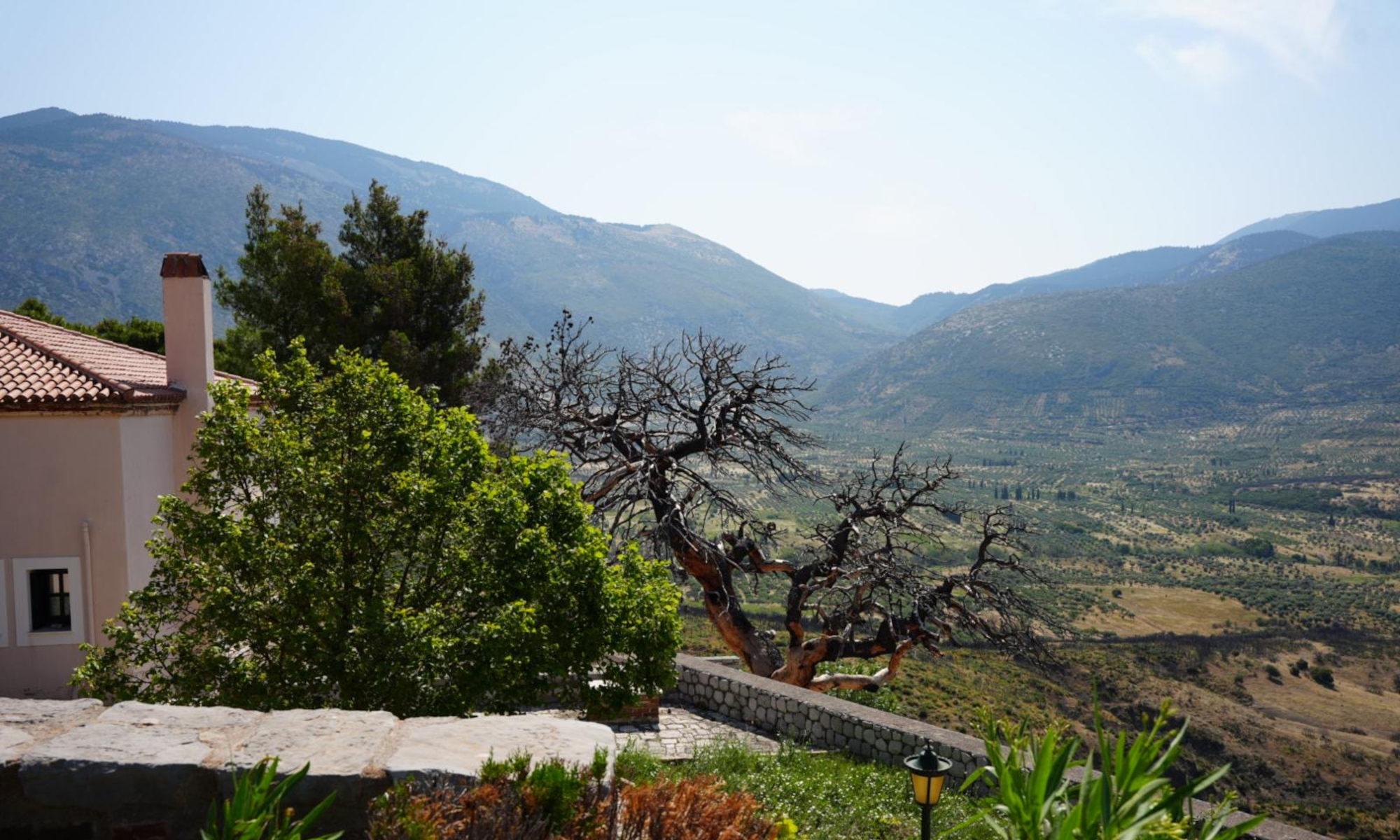By Annalisa Jenkins
On a hot June morning, Stelios Vathrakokoilis leaned against the bed of his pickup and looked out over the cracked fields on the Cycladic island of Naxos where he and his brother grow potatoes. He gestured over his shoulder and sighed.
“Fifteen days from now, this well will be completely dry,” he said. When the water runs out, he will be forced to irrigate with salty groundwater.
Having grown up in the 1970s and 80s, Vathrakokoilis remembers farmers making a good
living. Naxos potato seeds, known for the unique flavor from the island’s low-calcium soil, were coveted around the country.
Since the mid-90s, however, climate change has parched the island and over-tourism has poached agricultural land, workers, and water. A few decades ago, Naxos produced over 20,000 tons of potatoes each year, Dimitrios Kapounis, President of the island’s farming association, said. This year, he hopes it will produce three.
In 2024, drought left the island’s reservoir empty and the island’s hotels over-pumped their wells, leaving Vathrakokoilis’ dry. That year, he said he “didn’t plant a thing, absolutely nothing, because of the lack of water.” Vathrakokoilis’ work is threatened by climate change, which parches the island; over-tourism, which poaches agricultural land, workers, and water; and a culture that devalues farming.
Vathrakokoilis says the government has yet to fulfill its promise to put water meters on Naxos; there is no tool to measure or regulate how much the ever-growing number of hotels pull—the hot tub on one hotel room’s private balcony looks out over a large pool.
Over the past several decades, the island’s economy has become dependent on tourism: “if hotels don’t work in the summer, the farmers don’t work in the winter,” Irene Lianou, Reservation Manager at hotel Lianos Village, said.
“Tourists are fine,” Vathrakokoilis said, “we all profit from that.” But he needs the island to find a way to share dwindling water resources.
He has some ideas. If he had the money, Vathrakokoilis would install a water-efficient drip system to irrigate each plant directly rather than sprinkling the whole field. Since 2017, he has advocated for a waste-water system that would re-use millions of cubic meters of grey water for agriculture rather than dumping it in the ocean, bringing in water more cost-effectively than a desalination plant.
The project has seen little progress over the last eight years. Vathrakokoilis is frustrated by the country’s politics, which he thinks are more wrapped up in partisan infighting than passing policies that will help people. “This is crazy, we’re losing so much water,” he said.
Eleni Myrivili, who served as Athens’ Chief Resilience Officer from 2014 to 2019, agrees the Greek government could do more to address the problem. “I swear to you, nobody in the central government, and nobody in city government was talking about climate change,” she said in a recent interview of her time in the Athens office.
Now working for the UN, Myrivili says that globally, climate efforts are focused on mitigation, not the kind of acute adaptation projects that Vahtrakokoilis needs to keep his farm alive. He feels forgotten, that “no one cares for agriculture.”
Paros’ mayor, Kostas Bizas, who campaigned on regulating tourism, spoke of food production with resignation, suggesting an inevitable decline. While the government could subsidize equipment modernization, he says the fate of farmers is in the hands of local society, where they cannot compete with the prices of imported goods.
As the effects of climate change worsen and adaptation policies become increasingly necessary, Greece must decide if it will invest in climate adaptation for Cycladic farmers. Eleni Myrivili grapples with how lawmakers ought to decide what is worth saving, scoffing at new housing developments in Boston and Miami flood zones.
While not optimistic about agriculture’s future on his island, Mayor Bizas worries about tourism becoming its only industry; “You cannot totally rely on tourism, because it comes and it goes,” Mayor Bizas warns. Katarina Moschu worries that the boom of tourism will end, and that “the locals will have sold out their island and will be left with nothing.”
If his government does not invest to help him adapt to climate change, Vathrakokoilis is sure about one thing. “In a few years, there will be no agricultural production on the island.”
